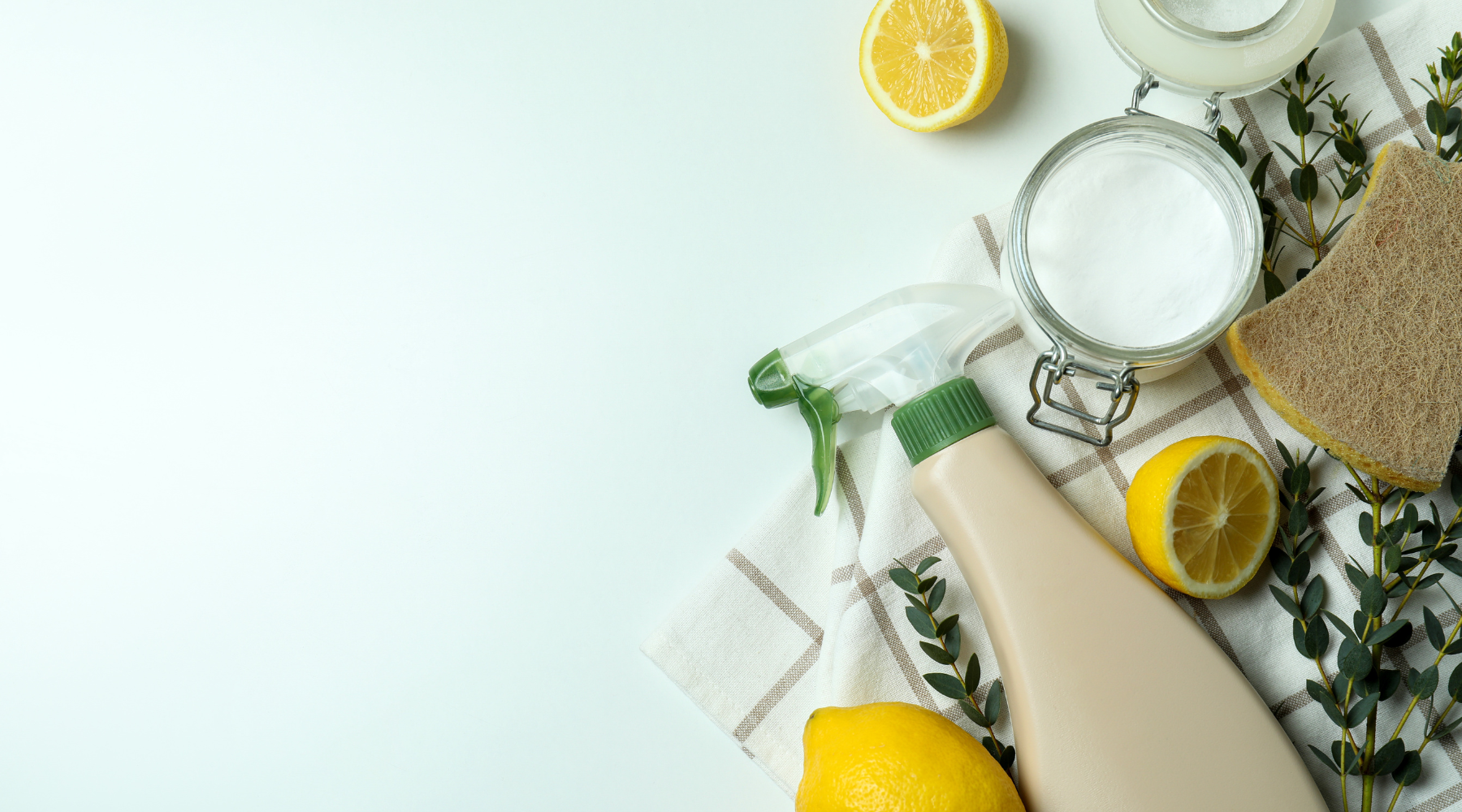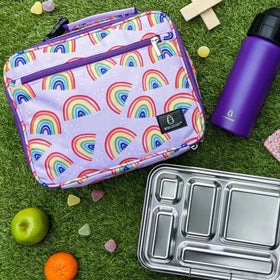
Spring Cleaning - DIY Natural Swaps for Cleaning Products
Spring is in the air. The nights are still cool, and the mornings are frosty, but the flowers are starting to bloom. It's just around the corner. So that means it's time for a spring clean. It's time to rid the house of all the dust that's accumulated in the nooks and crannies of your floors, cupboards, and ceiling fans. It's time to reorganise the shelves, remove the fingerprints from the walls and powerpoints, and generally declutter and freshen up your home. But the problem with spring cleaning (besides the fact that it's hard work!) is the cleaning products. Chemicals in everyday household cleaning products have been linked to reproductive toxicity.
Spring is the perfect time to clean up your cleaning cupboard.
Set yourself a challenge. How much of your home can you spring clean without using any of the mainstream cleaning products? We've got a few ideas to get you started.
Bathroom cleaning
Clove oil has antifungal properties, removing mould by actually killing the spores, not just bleaching it like many store bought cleaners. Be careful with clove oil, though. It might be natural, but you still need to use it with caution. Clove oil contains eugenol, which is an irritant and an allergen.
Keep the windows open for ventilation, and use gloves to avoid skin contact. If you're not keen to use clove oil, mixing eight parts vinegar to two parts water, followed by a water rinse, will do the job. For daily or weekly bathroom cleaning, one part water to one part vinegar and a few drops of essential oil in a spray bottle keeps the soap scum at bay. Vinegar and tea tree essential oil work well to disinfect the toilet, too.

Kitchen cleaning
An all purpose kitchen cleaner is simple to make. Use one part vinegar to one part water and add a few drops of essential oil like orange oil or lemongrass oil.
- If your bench tops are made of marble, granite, or stone, substitute the vinegar for cheap vodka or rubbing alcohol. If you love the freshness of lemon or orange scented cleaners, start saving your peels and store them in a jar of vinegar for two weeks. Strain and dilute with water. Hey presto, DIY citrus cleaner.
- Sanitise chopping boards by rubbing them with half a cut lemon, leave it for ten minutes, and rinse away.
- Clean the fridge using half a cup of baking soda and hot water. An open cup of baking soda in the fridge will get rid of any smells, too.
- Unclog drains by pouring half a cup of baking soda and boiling water down the drain. If that doesn't work, add half a cup of vinegar after the baking soda, cover it up with a lid whilst it fizzes, then pour the boiling water down.
- Degrease your pans by applying a little salt and olive oil and scrubbing.
Oven cleaning
To get rid of baked on, caked on food, and grease, heat your oven. Then spray it with vinegar and add a layer of salt or bicarb soda. Once the oven has cooled, use a wet towel to scrub the caked on grease.

Floor cleaner
For tiled floors, mop with one part vinegar to two parts warm water. You can add a few drops of essential oil to give a nice smell, although the vinegar smell will soon fade.
For cleaning carpets, you'll find several different recipes and opinions on the internet. But generally, they all involve one cup of vinegar to two cups of water, some salt, and perhaps some lavender essential oil for deodorising. Spray, leave to dry, and then vacuum.
Walls, power points and all those grubby fingerprints
Use a mix of good old vinegar and water once again. For stubborn marks, add some baking soda and scrub with a rag.
Cleaning Mirrors and Windows
I can remember cleaning windows as a kid using damp newspaper. It worked a treat. But if you're like me and read your news online these days, try one part vinegar to four parts water in a spray bottle. If you've got a citrus peel infused vinegar on the go, you can use this, too. Mix one part citrus vinegar solution to four parts water. Pop it into a spray bottle and you're right to go. For really dirty windows or mirrors, dampen a cloth with a bit of water with a squeeze of natural dishwashing liquid or castile soap. Give it a rub over the worst parts, then go to work with your vinegar mix.

Furniture polish and wood cleaner
Olive oil and lemon juice are great for cleaning and polishing wood furniture. Mix two tablespoons of lemon juice with 10 drops of lemon oil and a couple of drops of olive oil. Dip a soft cloth into the mixture and polish away.
Dust
Dust your furniture using a damp microfibre cloth to remove the dust instead of pushing it around. Add a drop of an aromatic, antimicrobial, and antibacterial essential oil like lemongrass oil for an uplifting scent.
Store cupboard cleaning products
When you've got a few basics in your store cupboard or pantry, you can mix up some DIY cleaning products on the fly. Here's some of the handiest items to have:
- Baking soda
- Vinegar
- Castile Soap (made from plant oils)
- Lemons or oranges
- Cheap vodka
- A selection of essential oils such as:
- clove oil
- orange oil
- tea tree oil
- peppermint
- lemongrass
- lavender
- eucalyptus
- rosemary
- Reusable items such as microfibre cloths or clean rags for dusting and wiping
You may see borax recommended as a natural cleaning product for your home, but we don't recommend it in homes with children, or women of childbearing age. Here's why.
'Detoxing' Rooms in Your House
We've got some great ideas on how to reduce environmental toxins in your home, room by room.
And if you want to switch to natural, but don't want to go down the DIY route, check out Hello Charlie's large range of natural cleaning products.


